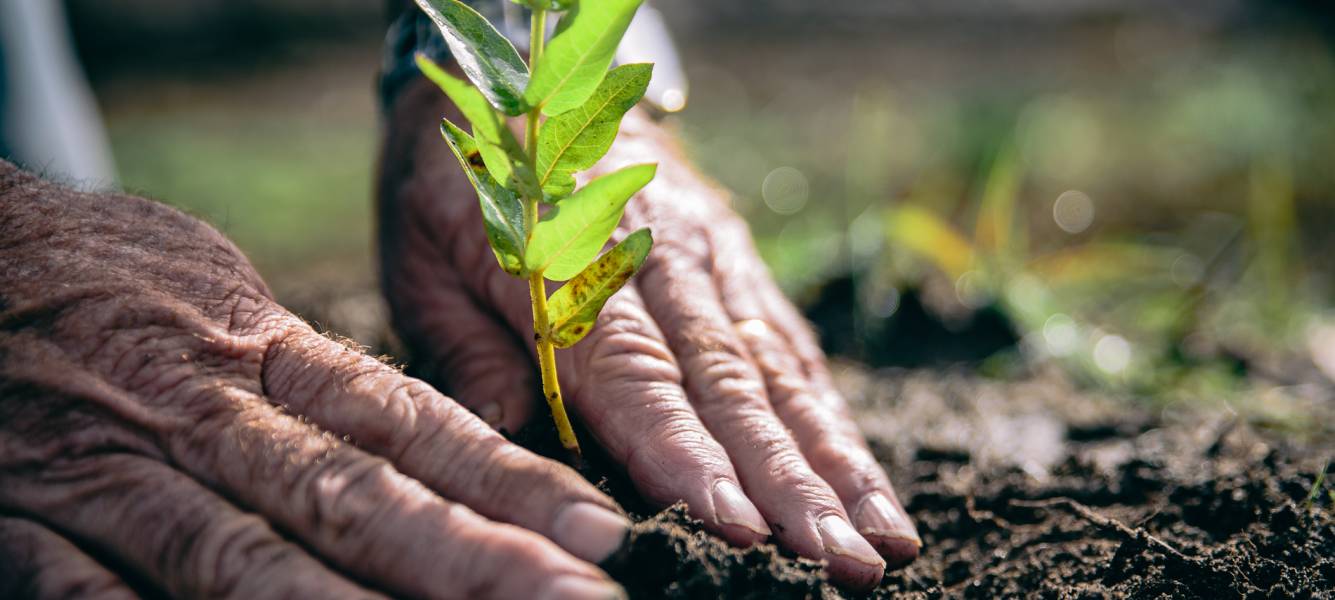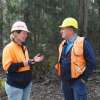
Open-rooted seedlings: Tips from two Tasmanian nurseries
Posted 13 April 2024
Species, sites and planting Tree Alliance
Ordering stock is a step to prepare your plantation. Consider where, when and how you source stock, to give your trees the best chance of success. Buying high-quality seedlings means trees have a better chance of survival and can also help to produce higher value wood products.
We spoke to two Tasmanian nursery owners about why open-rooted stock is a smart choice for farmers. Plus, we discussed the ways nurseries can help farmers during their plantation planning.
Open-rooted seedlings for strong trees
Richard Clark owns Lanoma Nusery, a family-run business that has been operating for over 40 years. The nursery has grown open-rooted pine seedlings for nearly all of Richard’s life. He says that young seedlings can be actively managed to create healthier, stronger trees.
"Our seedlings are grown in an open field, out in the environment and the elements," says Richard.
"We grow them in the best, high-nutrition soils, with the right amount of moisture. We make sure the trees have everything they need to start their journey.
"Then we give them some tough love. Because they’re not always going to be in this beautiful nursery," add Richard.
"We undercut the roots, we take the tops off, we side trim them. So we stress them in their last month in the nursery.
"But that means they survive better when they’re out in the forest. They’re hardier, with a better-developed root system."
Stephen Hill, from Hills Transplants, supplies Eucalyptus nitens, Radiata pine and speciality species for plantations. He agrees that proper seedling care and management is a key part of growing high-quality trees.
"We geminate inside a glasshouse," says Stephen. "It’s climate-controlled for high humidity during the germination process.
"Then we move the seedlings outside for the rest of the time they’re with us. That way, they’re growing in full light and full wind. This will create short, stocky, strong trees.
"Attention to detail is really important,’ adds Stephen, ’you have to sow at the right depth, have complete control of growth by liquid feed, and apply water evenly.
"We are here every day," says Stephen, ‘we look at everything, touch everything and have an influence on the process. We check stock all the way through the process."
Find high-quality stock and order early
Sourcing high-quality seed is vital to give your trees the best chance of success. Both Richard and Stephen say a nursery needs to have close links with quality suppliers. They also say farmers should contact nurseries early to make sure stock is available. Nine to twelve months before the intended planting time is ideal.
"Our seeds are bred to be high quality with high genetics," says Stephen. "We take orders and source seeds according to what the customer wants.
"There are different levels, so customers have a choice. Whether they want higher genetics for plantation trees, or whether they are using trees for shelter and wildlife corridors.’
"It’s really important to have high-quality genetic seed," adds Richard. ‘We have really good relationship with seed companies to source it.
"But we need to be getting those orders early. If you’re doing site preparation, you should also be preparing when and how you’re going to secure your trees."
Get support – and plant trees!
Farmers who are new to tree planting don’t need to go it alone. There are many businesses in Tasmania that can help, and nurseries are a great place to find recommendations.
"If a farmer has some land they’re not using for pasture or crops, they can put that into forestry for a long-term investment,’ says Stephen.
"There are people out there with the expertise. Nurseries have an abundance of contacts in different fields, so farmers can reach out for seedlings and for contacts.’
"Forestry on farms is a really wonderful thing to do," says Richard. "When it’s done right, trees can diversify income streams. We’ve done it ourselves on our farm and it has been a great step.
"People should go into forestry asking a lot of questions, and asking for a lot of help," adds Richard. "Trees are a speciality crop that need speciality activities. But there’s plenty of help and support to do it viably and profitably."
Find out more about ordering stock with the Tree Alliance knowledge hub. Go to www.treealliance.com.au and visit the topic, Trees, site selection and planting.









